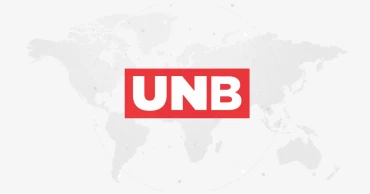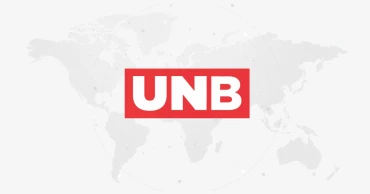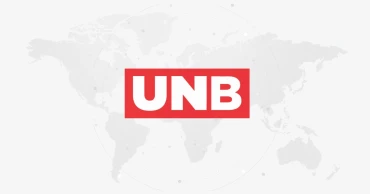tax evasion
UN expert welcomes verdict on Nobel laureate Maria Ressa's tax evasion case
The UN expert on freedom of expression Thursday welcomed the decision by a Philippines' court to acquit journalist and Nobel laureate Maria Ressa and news outlet Rappler of tax evasion charges.
"The acquittal of Maria Ressa and Rappler is a victory for media freedom as well as justice," Irene Khan, UN special rapporteur on the freedom of expression and opinion, said.
"Journalistic work, especially journalistic expression about public and political issues, is an integral part of the right to freedom of expression and guaranteed by international human rights law."
Ressa and Rappler were charged by the former administration in the Philippines with evading tax payments after the news outlet raised foreign funding.
If convicted, the Nobel laureate would have faced up to 10 years imprisonment and fines. Maria and Rappler denied the charges and said the transactions involved legitimate financial mechanisms.
Noting that Maria Ressa continues to face several other charges, including cyber libel, Irene called on the authorities to withdraw all charges against her.
Read more: Nobel winner Maria Ressa, news outlet cleared of tax evasion
"I urge the government to abolish criminal libel, which has no place in a democracy," she said.
The special rapporteur has been in touch with the Pilipino government on this matter for several years.
Special rapporteurs are part of what is known as the Special Procedures of the Human Rights Council.
Special Procedures, the largest body of independent experts in the UN Human Rights system, is the general name of the Council's independent fact-finding and monitoring mechanisms that address either specific country situations or thematic issues in all parts of the world.
Special Procedures' experts work voluntarily; they are not UN staff and do not receive a salary for their work. They are independent from any government or organization and serve in their individual capacity.
Read more: Journalist Maria Ressa reflects on Nobel Peace Prize win
Irene was appointed UN special rapporteur on the promotion and protection of the right to freedom of opinion and expression on July 17, 2020. She is the first woman to hold this position since the establishment of the mandate in 1993.
3 years ago
NBR counting losses for rampant tax evasion
Despite taking VAT registration, around 22 percent of companies are not submitting their VAT returns.
A large number of individuals are also remaining out of the tax network despite having taxable income.
A total of 26 lakh people or 52.41 percent of the taxpayers did not submit their income tax returns in the last fiscal year. Of the 50 lakh Taxpayers Identification Number (TIN) holders, some 24 lakh submitted their income tax returns during last fiscal year.
As a result, the National Board of Revenue is missing a large amount of revenue.
Though the companies are taking VAT for products or services from customers they are not submitting money to the government exchequer.
The visiting IMF officials have advised the NBR to increase revenue collection in different forms.
Economists and sector insiders have repeatedly suggested reforming the country’s revenue sector in a way that the tax ratio in the GDP would grow as per the volume of the economy.
Read more: 20% year-on-year growth: NBR collected record Tk 8,733cr VAT in Aug
In south Asia Bangladesh is the lowest tax-GDP ratio. A 2016 World Bank report said that the South Asian tax GDP ratio is 19.1 percent in Nepal, 16 percent in Bhutan, 12 percent in India, 9.9 percent in Afghanistan, 9.1 percent in the Maldive while in Bangladesh it is 8.8 percent. In 2017 Bangladesh's position in tax GDP ratio slid to 7.6.
While official data portrays the burgeoning growth of Bangladesh's economy, tax collection shows an almost opposite trend.
The tax collection as a percentage of GDP has been stuck at around 7.6 percent in 2017, the lowest in South Asia and one of the lowest in the world.
This prompts economists to question the disconnect since revenue receipts should increase in line with the expansion of the economy.
Dr Muhammad Abdul Mazid, former NBR chairman, told UNB that large companies might be avoiding VAT through different ways that the NBR cannot detect owing to a lack of capacity.
He suggested enhancing the capacity of revenue officials, along with ensuring good governance in the revenue sector so that people encourage paying taxes in a hassle-free environment.
Dr Ahsan H Mansur, executive director at Policy Research Institute (PRI), said businesses could not fully make a turnaround from the pandemic-induced losses in FY2022 because of an economic slowdown to some extent, which led to lower growth in VAT collection from large companies.
Commenting on the poor collection from the banking sector, he said banks are now going through a bad patch with a slump in profitability.
Mansur also suggested reforming the total VAT and tax sector to grow the revenue collection from domestic sources, in line with global standards, he said.
Read more: Tax return document not needed for loans up to Tk 20 lakh: NBR
"This shows a big mismatch," said Selim Raihan, executive director of the South Asian Network on Economic Modeling.
"It shows that there is no relation between GDP growth and revenue collection although the tax-to-GDP ratio increases in other countries because of the growth of the economy. In the case of Bangladesh, it is a puzzle,” he added.
According to NBR, there are 3.72 lakh companies that have taken VAT registration. Although among them 2.90 companies or 78.21 percent file VAT returns regularly.
However, still, around 22 percent of companies do not submit VAT returns, according to official sources at the VAT Division of the NBR.
A senior official of the NBR's VAT Division told UNB that 3.72 lakh businesses have registered VAT till August this year. Among them, 2.43 lakh or 83.66 percent have filed returns in online platform.
As per the VAT Act, companies which have annual turnover below Tk50 lakh do not need VAT registration.
3 years ago
TIB urges govt to spare people the burden of foreign debt
Transparency International Bangladesh (TIB) has suggested the government to prevent tax evasion and money laundering by adopting 'Common Reporting Standard (CRS)' to stabilise foreign exchange reserves without burdening the people with foreign debt.
Taking loan from the International Monetary Fund (IMF) and other international institutions is considered normal for stabilising foreign exchange reserves, the graft watchdog body said in a statement on Tuesday.
But the public has to bear the entire burden of repaying such loans along with the interest, it added.
TIB Executive Director Iftekharuzzaman said, "Our question is - to deal with the financial crisis, especially the growing shortage of foreign currency, foreign loan assistance and other ongoing initiatives have been taken with the highest priority of public interest or not! In other words, without increasing the burden of debt on the people, is there an alternative way to be considered?”
In this context, TIB suggested that there is a way open for the government to earn many times more money than the proposed foreign loan annually and sustainably by preventing tax evasion and money laundering at almost no cost.
According to data from Global Financial Integrity, the amount of money laundered through invoice fraud during the 2008-2015 was $8.2 billion annually, which would already be at least $12 billion if data were available to be updated.
Read: CEC’s statement on election-time violence suicidal: TIB
Iftekharuzzaman said, "Growing money laundering is a huge challenge for Bangladesh."
The bulk of money laundering in Bangladesh is organised through misinvoicing or invoice fraud in the import and export trade. As a result, there is massive tax evasion.
It is a legal and moral responsibility for the government to adopt an effective CRS to prevent the large-scale money laundering as well as increase revenue collection, reads the statement.
And it will be helpful in increasing the foreign exchange and national income in a cheap and sustainable manner at a rate many times higher than the one-time proposed international loan of the IMF.
The countries where money is laundered from Bangladesh, even the so-called tax-haven countries or regions are already listed in CRS and are exchanging information, said Dr Zaman.
TIB urged the government to set an example of political will to adopt CRS to tackle the financial crisis in the short term and control tax evasion and money laundering sustainably in the medium and long term.
"We hope that the government will take necessary legal reforms at the national level in addition to the necessary international steps immediately," he added.
More than 120 countries of the world, including many neighboring countries of Bangladesh, are monitoring all types of banking and financial transaction information of citizens located in the country and outside the country automatically through the CRS, which is an initiative of the OECD formed in 2014 and has been effective since 2017.
CRS has helped countries in controlling tax evasion and revenue collection at home and abroad on the one hand and ensuring accountability including preventing, identifying and recovering the laundered money through the exchange of information.
3 years ago
Gold import policy fails to stop smuggling, tax evasion: NBR Chairman
Smuggling of gold has not decreased despite allowing its import legally, NBR Chairman Abu Hena Rahmatul Muneem said on Saturday.
The head of National Board of Revenue (NBR) said this while addressing as the chief guest 13th round lottery draw at the conference room of NBR building in the city on Saturday.
He said the government has formulated a policy to encourage gold imports in the country through legal channels.
Despite that move, smuggling increased which seems very difficult to stop, he pointed out.
He said the government is working to restore stability in the country’s gold market to minimize smuggling.
"Gold is used not only to evade revenue but also for illegal transactions. I don't know whether the gold smuggling can be stopped completely. Because gold is smuggled in many ways all over the world, this is the reality,” Muneem said.
“Even then we are trying to figure out how to prevent smuggling. Measures will be taken in the next budget to facilitate gold imports,” he added.
He said, "There is dissatisfaction with the VAT machine EFD. The price of the product should be determined by including the price of VAT. Consumers are discouraged when it comes to collecting VAT separately.
4 years ago
Indian tax police raids Bollywood actor Sonu Sood
Indian tax police Wednesday raided Bollywood actor Sonu Sood's properties in the western city of Mumbai over alleged tax evasion charges.
Sources told UNB that the residence and five other premises of Sonu -- who helped thousands of migrant workers stranded by the Covid-19 lockdown in Mumbai return home last year -- were raided by tax sleuths.
The raids were in connection with a recent deal between the 47-year-old actor's firm and a real estate company based in the city of Lucknow in the northern Indian state of Uttar Pradesh, the sources said.
The raids come days after the actor met Delhi Chief Minister Arvind Kejriwal in the national capital, fuelling rumours of his political debut with Aam Aadmi Party.
"Sonu Sood a Messiah who helped millions of poor who were orphaned by the govt. This Income Tax raid shows Modi Govt's insecurity," Kejriwal's Aam Aadmi Party tweeted, in the wake of the tax raids.
Though he started his acting career in regional language films on southern India in 1999, Sonu began starring in Hindi films in 2002. He earned accolades for his role in Mani Ratnam's Yuva in 2004 and in Aashiq Banaya Aapne a year later.
In 2010, the former model played the lead villain in Abhinav Kashyap's blockbuster Dabangg, co-starring with superstar Salman Khan. He also owns a production house.
4 years ago
265 zarda, gul factories evading taxes
Many smokeless tobacco (SLT) manufacturers of Bangladesh have managed to slip away from the government's tax net; at least 265 of them are not paying taxes and 33% do not even have a valid trade licence.
Of the 483 SLT factories, 435 zarda – moist or dry chewing tobacco – and 48 gul – oral tobacco powder – factories in Bangladesh, only 218 pay taxes.
Also read:1.26 lakh people die in Bangladesh every year in diseases ...
Dr Nasiruddin Ahmed, former National Board of Revenue (NBR) chair, came up with the number Monday while presenting the findings of the study "Factors inhibiting smokeless tobacco tax payments by smokeless tobacco manufacturers operating outside the tax net in Bangladesh" at a webinar.
The study was conducted with assistance from the Campaign for Tobacco-Free Kids.
NBR jointly organised the programme with several anti-tobacco organisations, including National Heart Foundation, Dhaka Ahsania Mission, UBINIG, Voice and Progga.
In Bangladesh, SLT manufacturing and marketing mostly go unsupervised and unregulated. So, these products remain quite cheap, available and affordable.
Also, around 91% of SLT manufacturers produce their products manually. SLT products are primarily manufactured in small unmarked factories or houses. Their total monthly gross turnover is around Tk2.7 crore.
Also read:Dhaka Conference: Amend tobacco laws, impose specific taxes
Bringing the SLT producers under the tax net would increase the tax revenues from this sector considerably, the study said.
However, it also identifies the "informal" nature of SLT production as the main impediment in ensuring tax compliance in the sector.
Several other issues concerning the NBR, including lack of trained officials, the organisational structure of field offices and the outdated equipment and systems also add to this problem, the study said.
The absence of a fully digitalised and automated tax return processing system as well as the lack of a secure tracking and tracing system also facilitates tax evasion.
The study suggests introducing an automated tax return processing system, equipping and training the NBR officials, restructuring NBR field formations, introducing a secure tracking and tracing system (TTS), and authorising local government institutions to bring SLT manufacturers under local tax nets.
SLT products are severely detrimental to health and responsible for causing oral, oropharyngeal and other types of cancers.
However, around 20.6% – 2.20 crore – adults and school-going children aged 13-15 use smokeless tobacco in Bangladesh.
Despite such a high prevalence of tobacco usage, the SLT sector contributed Tk30.6 crore in revenue – 0.12% of the total revenue collected from tobacco – in the fiscal year 2019-20.
4 years ago
NBR needs to be tough to realise outstanding taxes: Experts
Checking tax evasion and avoidance, reviewing tax exemption with implementing reforms in tax management and adopting other tough technics to realise outstanding taxes could be a good strategy for the National Board of Revenue (NBR) to minimise its gap in revenue target and collection, according to experts.
5 years ago




.jpg)




